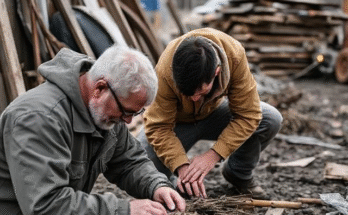Introduction
In a world run so much by appearances and curated person, as it’s easy to write an idealized version of yourself. Ironically, though, the best way to make meaningful connections with others is to be authentically you.
Authenticity resonates. When you arrive as your authentic self, you exude a sense of comfort and confidence that comforts the people around you. Sincerity, on the other hand, says what you mean and what you say; people are instinctively attracted towards it, as it is the basis of every great relationship built on trust.
Impersonating someone else may work for a minute, but it’s draining and impossibly – false.” At worst, it can build relationships on false pretenses that have little chance of surviving.”
Authenticity Attracts Authenticity
celebrated, not hidden. But your determination to remain yourself encourages others to do so. They view you living truthfully and they start to question why they can’t take the chance to be themselves. The permission you gently grant to those around you causes them to let down their own masks and that creates a cascading ripple effect of realness that can change cliques or full communities.
Moreover, standing out usually leads to clarity about who you are and what is important to you. As you become your true self, algorithms filter out relationships that were based on being a follower or pseudo relationship.
What remains is a circle of other human beings that shine at the same frequency as your essence — people who love you not for the facade you show up with but for the naked you. These serve as a fountain of support, growth, and compassion.
This transgression of individuality becomes an expression of service: again to be seen, to be heard. Living and loving who you are will make people around you realize that they can be true to themselves as well.
The more are humans are distinctive as individuals, the more expansive, plural, variegated, interwoven is our human experience together. And, by daring to be different, you are making your own life better and lifting everyone else with it.

Emotional Transparency Builds Trust
To be yourself is to trust your emotions, your fears and your ambitions. Sharing a little of what’s going on inside, is a sign that you’re trusting the person you’re sharing this with. This honesty is the foundation of better, more sincere connections.
Vulnerability might sound high risk, but it’s actually vital to establishing trust. We create a safe space for the others to do when we share our own fears or we admit our own mistakes. Speaking candidly allows both individuals a safe space to feel seen and understood.
When the vision of being perfect is released, it becomes just a little easier to trust in the things that you create. Authenticity shows we care more about the relationship than our image. During these times of vulnerability are also the times that most of us discover such heightened levels of compassion and understanding.
Being you at the end of the day is what allows other people to really know you. Being Vulnerable Helps You Connect With Others When you allow yourself to be vulnerable, you begin laying the groundwork for trust, understanding and mutual respect. And it’s in that honest, shared space that we uncover the abiding power of human connection.”
Practical Tips for Embracing Your Authentic Self
In a society that frequently compels us to fit in, embracing your true self can be daunting. But living authentically is how to live a more fulfilling and purposeful life.
The first step is self-awareness — taking the time to understand your values, passions and beliefs without outside influence. You can connect to your true self by journaling, meditating, or just having some alone time. For example, learning the importance of boundaries. Refusing to do things that aren’t in alignment with your value system keeps you authentic without having to feel guilty.
Self-acceptance is another big part of being your most authentic self. Stop trying to do the right thing, and accept all your weaknesses and strengths. Be with people that appreciate you, not people that want you to change p.
Start creating a life that is more and more aligned with your true self: follow your passion, share your truth, and make choices that feel right in your heart. The more faithful you are to your true self, the more self-assurance and solitude you will learn to generate.
Know Yourself: Spend time discovering your core values, things you enjoy, and what differentiates you as a person. You may find journaling or meditation helpful to clarify your thoughts.
Defined Boundaries: Do Not Shake Your Values to Please Others Protecting your authenticity can begin, quite simply, by saying “no” when you need to.
Accept Flaws: Learn that nobody is ideal and your flaws form part of being human and relatable.
Finding spontaneous people around you: When you want to be yourself, you must surround yourself with amazing people who appreciate you and get to know you as his true self.
Conclusion
Being yourself does not mean disregarding self-improvement or social norms. It’s about embracing your oddities but also addressing them. It’s also about the recognition that not everyone is going to connect with the real you — and that’s perfectly OK. Being you will attract the people who value who you are and what you stand for.
In a society where we are often encouraged to bend and fit into “ideal” molds, it takes great strength to stand up and display our true, authentic selves. But paying the price of hiding your true self is steep. The more you accept the original you the more liberating it is to stop all of the pretending, and in doing so to also find inner peace. Sometimes it’s a struggle to become authentic, yet the effort is utterly worthwhile. You start attracting people who are honest with you instead of feeling like they need to put on a front for you, resulting in far more rewarding relationships.
Best confidence is self-acceptance. It’s not about doing everything perfectly, it’s about knowing you’re unperfect and finding the power in it. The right people—those that genuinely appreciate you—will resonate with you and not some picture you cultivate to appease others. So stop pretending and start being you, and watch the right people gravitate toward you. Perfect people do not make for stronger relationships; authentic people do.



